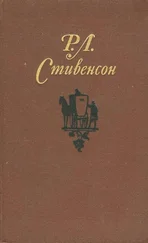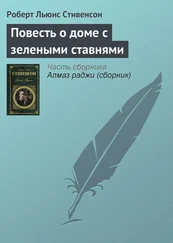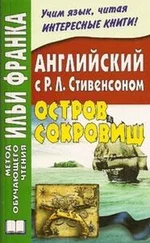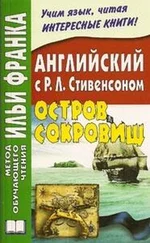Роберт Стивенсон - Memoir of Fleeming Jenkin
Здесь есть возможность читать онлайн «Роберт Стивенсон - Memoir of Fleeming Jenkin» — ознакомительный отрывок электронной книги совершенно бесплатно, а после прочтения отрывка купить полную версию. В некоторых случаях можно слушать аудио, скачать через торрент в формате fb2 и присутствует краткое содержание. Жанр: literature_19, foreign_antique, foreign_prose, Биографии и Мемуары, на английском языке. Описание произведения, (предисловие) а так же отзывы посетителей доступны на портале библиотеки ЛибКат.
- Название:Memoir of Fleeming Jenkin
- Автор:
- Жанр:
- Год:неизвестен
- ISBN:нет данных
- Рейтинг книги:3 / 5. Голосов: 1
-
Избранное:Добавить в избранное
- Отзывы:
-
Ваша оценка:
- 60
- 1
- 2
- 3
- 4
- 5
Memoir of Fleeming Jenkin: краткое содержание, описание и аннотация
Предлагаем к чтению аннотацию, описание, краткое содержание или предисловие (зависит от того, что написал сам автор книги «Memoir of Fleeming Jenkin»). Если вы не нашли необходимую информацию о книге — напишите в комментариях, мы постараемся отыскать её.
Memoir of Fleeming Jenkin — читать онлайн ознакомительный отрывок
Ниже представлен текст книги, разбитый по страницам. Система сохранения места последней прочитанной страницы, позволяет с удобством читать онлайн бесплатно книгу «Memoir of Fleeming Jenkin», без необходимости каждый раз заново искать на чём Вы остановились. Поставьте закладку, и сможете в любой момент перейти на страницу, на которой закончили чтение.
Интервал:
Закладка:
Robert Louis Stevenson
Memoir of Fleeming Jenkin
On the death of Fleeming Jenkin, his family and friends determined to publish a selection of his various papers; by way of introduction, the following pages were drawn up; and the whole, forming two considerable volumes, has been issued in England. In the States, it has not been thought advisable to reproduce the whole; and the memoir appearing alone, shorn of that other matter which was at once its occasion and its justification, so large an account of a man so little known may seem to a stranger out of all proportion. But Jenkin was a man much more remarkable than the mere bulk or merit of his work approves him. It was in the world, in the commerce of friendship, by his brave attitude towards life, by his high moral value and unwearied intellectual effort, that he struck the minds of his contemporaries. His was an individual figure, such as authors delight to draw, and all men to read of, in the pages of a novel. His was a face worth painting for its own sake. If the sitter shall not seem to have justified the portrait, if Jenkin, after his death, shall not continue to make new friends, the fault will be altogether mine.
R. L S. Saranac, Oct. , 1887.CHAPTER I
The Jenkins of Stowting – Fleeming’s grandfather – Mrs. Buckner’s fortune – Fleeming’s father; goes to sea; at St. Helena; meets King Tom; service in the West Indies; end of his career – The Campbell-Jacksons – Fleeming’s mother – Fleeming’s uncle John.
In the reign of Henry VIII., a family of the name of Jenkin, claiming to come from York, and bearing the arms of Jenkin ap Philip of St. Melans, are found reputably settled in the county of Kent. Persons of strong genealogical pinion pass from William Jenkin, Mayor of Folkestone in 1555, to his contemporary ‘John Jenkin, of the Citie of York, Receiver General of the County,’ and thence, by way of Jenkin ap Philip, to the proper summit of any Cambrian pedigree – a prince; ‘Guaith Voeth, Lord of Cardigan,’ the name and style of him. It may suffice, however, for the present, that these Kentish Jenkins must have undoubtedly derived from Wales, and being a stock of some efficiency, they struck root and grew to wealth and consequence in their new home.
Of their consequence we have proof enough in the fact that not only was William Jenkin (as already mentioned) Mayor of Folkestone in 1555, but no less than twenty-three times in the succeeding century and a half, a Jenkin (William, Thomas, Henry, or Robert) sat in the same place of humble honour. Of their wealth we know that in the reign of Charles I., Thomas Jenkin of Eythorne was more than once in the market buying land, and notably, in 1633, acquired the manor of Stowting Court. This was an estate of some 320 acres, six miles from Hythe, in the Bailiwick and Hundred of Stowting, and the Lathe of Shipway, held of the Crown in capite by the service of six men and a constable to defend the passage of the sea at Sandgate. It had a chequered history before it fell into the hands of Thomas of Eythorne, having been sold and given from one to another – to the Archbishop, to Heringods, to the Burghershes, to Pavelys, Trivets, Cliffords, Wenlocks, Beauchamps, Nevilles, Kempes, and Clarkes: a piece of Kentish ground condemned to see new faces and to be no man’s home. But from 1633 onward it became the anchor of the Jenkin family in Kent; and though passed on from brother to brother, held in shares between uncle and nephew, burthened by debts and jointures, and at least once sold and bought in again, it remains to this day in the hands of the direct line. It is not my design, nor have I the necessary knowledge, to give a history of this obscure family. But this is an age when genealogy has taken a new lease of life, and become for the first time a human science; so that we no longer study it in quest of the Guaith Voeths, but to trace out some of the secrets of descent and destiny; and as we study, we think less of Sir Bernard Burke and more of Mr. Galton. Not only do our character and talents lie upon the anvil and receive their temper during generations; but the very plot of our life’s story unfolds itself on a scale of centuries, and the biography of the man is only an episode in the epic of the family. From this point of view I ask the reader’s leave to begin this notice of a remarkable man who was my friend, with the accession of his great-grandfather, John Jenkin.
This John Jenkin, a grandson of Damaris Kingsley, of the family of ‘Westward Ho!’ was born in 1727, and married Elizabeth, daughter of Thomas Frewen, of Church House, Northiam. The Jenkins had now been long enough intermarrying with their Kentish neighbours to be Kentish folk themselves in all but name; and with the Frewens in particular their connection is singularly involved. John and his wife were each descended in the third degree from another Thomas Frewen, Vicar of Northiam, and brother to Accepted Frewen, Archbishop of York. John’s mother had married a Frewen for a second husband. And the last complication was to be added by the Bishop of Chichester’s brother, Charles Buckner, Vice-Admiral of the White, who was twice married, first to a paternal cousin of Squire John, and second to Anne, only sister of the Squire’s wife, and already the widow of another Frewen. The reader must bear Mrs. Buckner in mind; it was by means of that lady that Fleeming Jenkin began life as a poor man. Meanwhile, the relationship of any Frewen to any Jenkin at the end of these evolutions presents a problem almost insoluble; and we need not wonder if Mrs. John, thus exercised in her immediate circle, was in her old age ‘a great genealogist of all Sussex families, and much consulted.’ The names Frewen and Jenkin may almost seem to have been interchangeable at will; and yet Fate proceeds with such particularity that it was perhaps on the point of name that the family was ruined.
The John Jenkins had a family of one daughter and five extravagant and unpractical sons. The eldest, Stephen, entered the Church and held the living of Salehurst, where he offered, we may hope, an extreme example of the clergy of the age. He was a handsome figure of a man; jovial and jocular; fond of his garden, which produced under his care the finest fruits of the neighbourhood; and like all the family, very choice in horses. He drove tandem; like Jehu, furiously. His saddle horse, Captain (for the names of horses are piously preserved in the family chronicle which I follow), was trained to break into a gallop as soon as the vicar’s foot was thrown across its back; nor would the rein be drawn in the nine miles between Northiam and the Vicarage door. Debt was the man’s proper element; he used to skulk from arrest in the chancel of his church; and the speed of Captain may have come sometimes handy. At an early age this unconventional parson married his cook, and by her he had two daughters and one son. One of the daughters died unmarried; the other imitated her father, and married ‘imprudently.’ The son, still more gallantly continuing the tradition, entered the army, loaded himself with debt, was forced to sell out, took refuge in the Marines, and was lost on the Dogger Bank in the war-ship Minotaur . If he did not marry below him, like his father, his sister, and a certain great-uncle William, it was perhaps because he never married at all.
The second brother, Thomas, who was employed in the General Post-Office, followed in all material points the example of Stephen, married ‘not very creditably,’ and spent all the money he could lay his hands on. He died without issue; as did the fourth brother, John, who was of weak intellect and feeble health, and the fifth brother, William, whose brief career as one of Mrs. Buckner’s satellites will fall to be considered later on. So soon, then, as the Minotaur had struck upon the Dogger Bank, Stowting and the line of the Jenkin family fell on the shoulders of the third brother, Charles.
Читать дальшеИнтервал:
Закладка:
Похожие книги на «Memoir of Fleeming Jenkin»
Представляем Вашему вниманию похожие книги на «Memoir of Fleeming Jenkin» списком для выбора. Мы отобрали схожую по названию и смыслу литературу в надежде предоставить читателям больше вариантов отыскать новые, интересные, ещё непрочитанные произведения.
Обсуждение, отзывы о книге «Memoir of Fleeming Jenkin» и просто собственные мнения читателей. Оставьте ваши комментарии, напишите, что Вы думаете о произведении, его смысле или главных героях. Укажите что конкретно понравилось, а что нет, и почему Вы так считаете.







